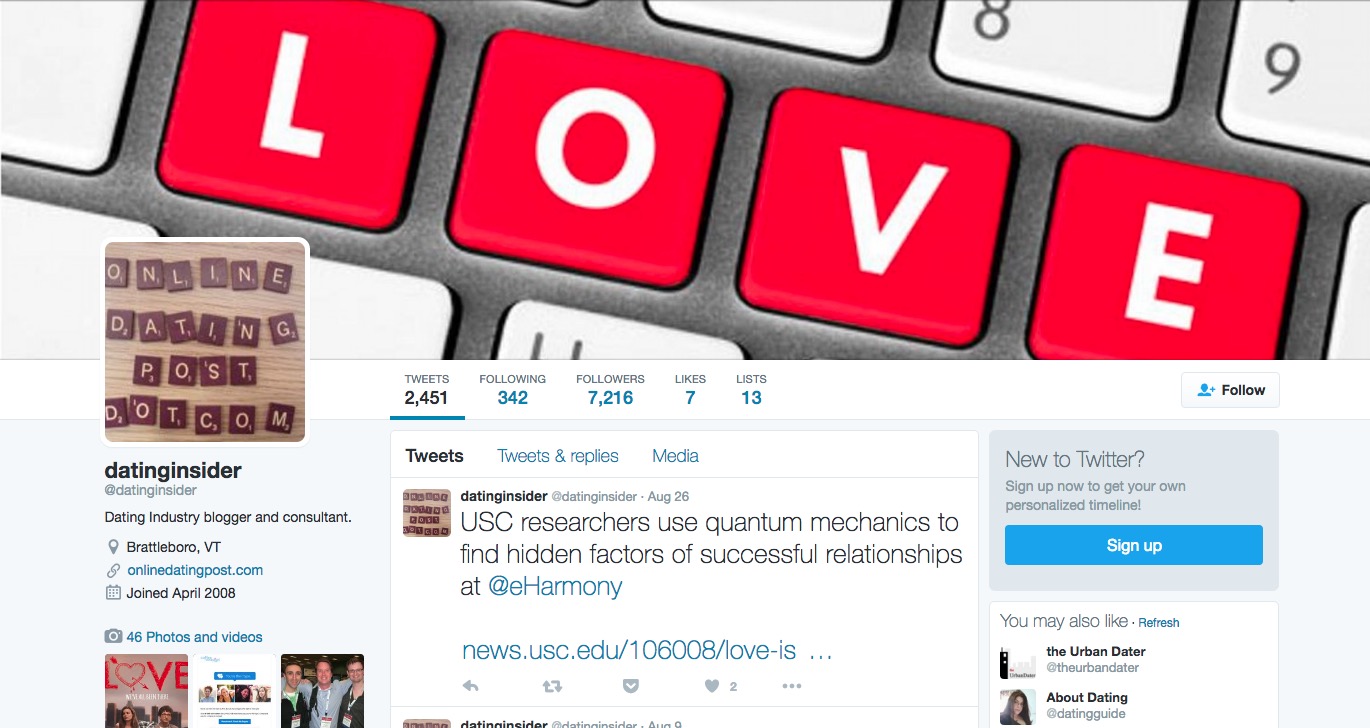Scientific American has taken online dating to task, applying various research methodologies and coming up with some interesting conclusions in an unfortunately titled article, The Truth About Online Dating.
I’ve talked with some of the researchers mentioned. Jeana Frost at Boston University and I have met a few times to discuss the more technical aspects of online dating research, and how to move research projects out of the lab and into the wild wild web.
A few quotes that jumped out at me:
When eHarmony recommends someone as a compatible match, there is a 1 in 500 chance that you’ll marry this person…. Given that eHarmony delivers about 1.5 matches a month, if you went on a date with all of them, it would take 346 dates and 19 years to reach [a] 50% chance of getting married.
Phase one–the Long Bar–is exemplified by companies such as Match, True and Yahoo! Personals. Phase two–the Long Test–is the bread and butter of companies like eHarmony and PerfectMatch. But phase three is already well under way.
Engage, for example, allows members to bring friends and family with them online, all of whom can prowl the profiles, checking people out and matching them up. Members can also rate the politeness of their dates, as well as the accuracy of the profiles. This is the new “communityâ€? approach to online matching–a naturalistic, social corrective for the deception that plagues cyberspace.
Lots of information debunking the current crop of tests, taking various dating sites to task for not going through scientific validation process.
If you make a few hundred million dollars a year connecting people on a site based on a matchmaking test of dubious quality, why on earth would you want to hold your test of to the scrutiny of the scientific community?
As someone not enamored with online personality testing, I find myself draw deeper into the science of matchmaking, while at the same time applauding what companies like Engage are doing, bringing a social/community aspect to dating sites which has been sorely lacking. The perfect dating site is a blend of both. Sites which realize this and act accordingly will succeed while generic free sites with no differentiating features will continue to wallow in obscurity.

